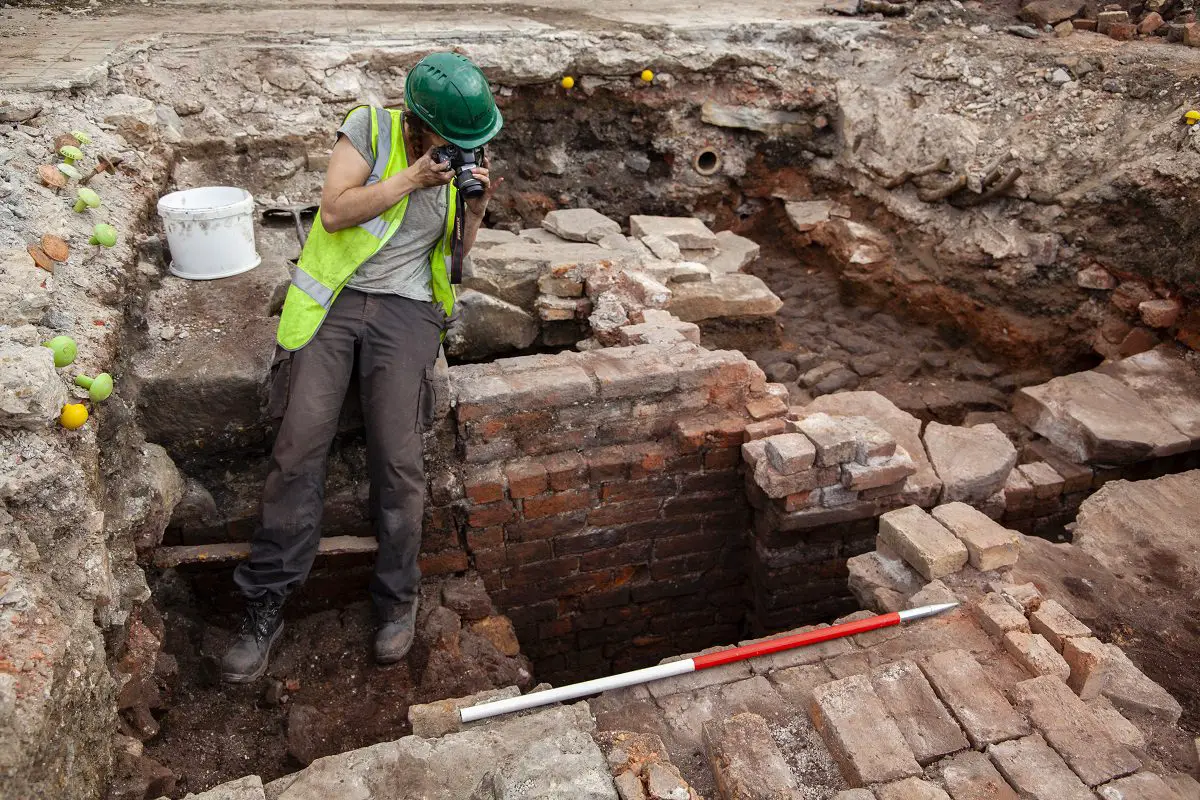Archaeologists from Wessex Archaeology will be conducting an excavation of Sheffield Castle in Sheffield, England.
Sheffield Castle was constructed following the Norman Conquest of England (1066) at the confluence of the River Sheaf and the River Don.
The earliest known reference of the castle dates from 1188 in a text made by Ralph Murdac, sheriff of Derbyshire, concerning the wardship of Maud de Lovetot.
Of all the guests to stay at Sheffield Castle, the most notable was Mary, Queen of Scots, who was held prisoner within the castle and grounds at various periods between 1570 and 1584.
During the English Civil War, Parliamentarian forces besieged the castle, ultimately reducing it to rubble. No drawings or plans of the castle are known to have survived.

Throughout April and May of 2024, archaeologists from Wessex Archaeology will be conducting a series of excavations to uncover and preserve the foundations of the circular towers of the castle’s gatehouse, and explore the destruction deposits from the razing of the original motte and bailey castle by John D’Eyvill in the 13th century.
The team will also be investigating areas never before excavated, finally reaching the remains of the 11th to 17th-century castle where Mary Queen of Scots was imprisoned.
Ashley Tuck, the archaeologist leading the dig on behalf of Wessex Archaeology, said: “Once a commanding centre of power for more than 600 years, the castle was left as a ruin by the Parliamentarians at the end of the Civil War as a symbol of its defeat.”
“Since then, the remains of this once-dominating structure have lain hidden from public view. As someone who lives and works in Sheffield, it is a great honour to lead the team uncovering its remains, so we can learn more about its tumultuous history and allow it to once again take centre stage in the city,” added Tuck.
Throughout April and May 2024, the Sheffield community is invited to experience and discover the site’s archaeology firsthand, through open days and opportunities to participate in the excavation for a day. Attendance is FREE with booking required. For more information and to book, visit www.wessexarch.co.uk/events
Header Image Credit : Wessex Archaeology
Sources : Wessex Archaeology





